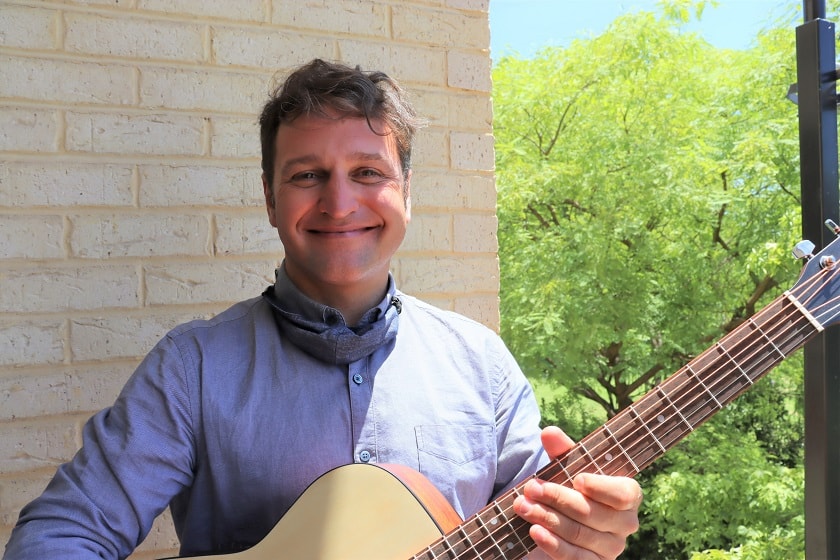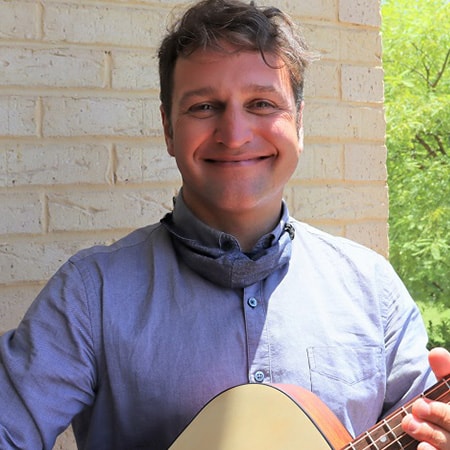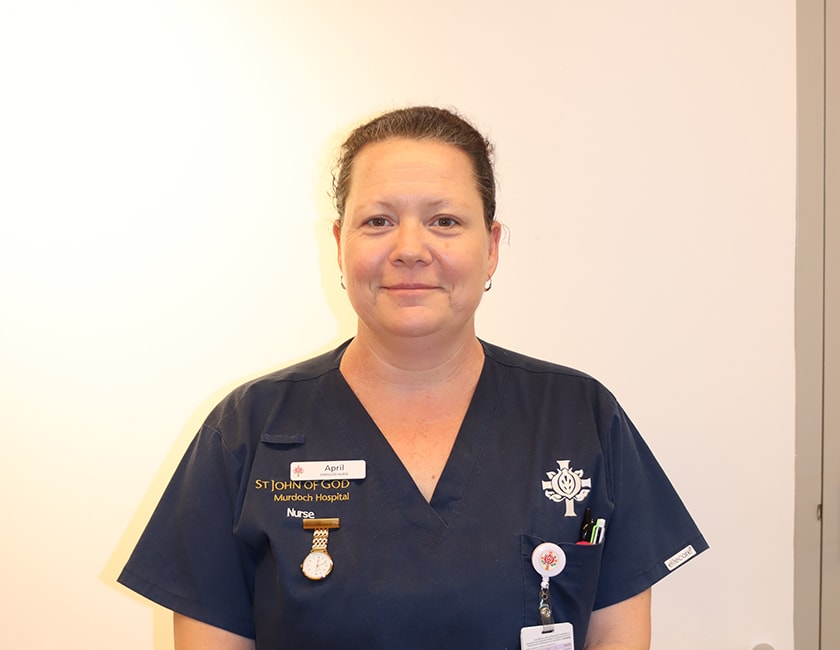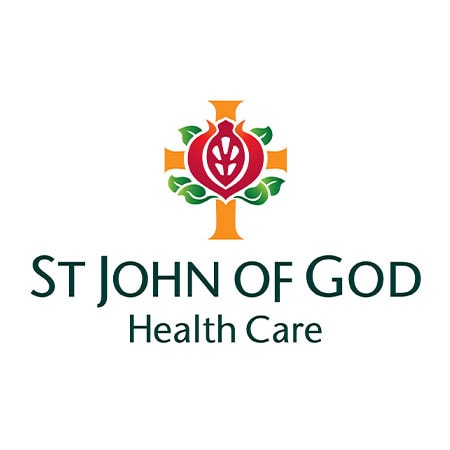Alongside medical symptoms such as pain and fatigue, many palliative care patients also face spiritual and psychological challenges that come with receiving a terminal-diagnoses or facing the prospect of decline.
Patients can experience the impact of isolation, a lack of control, chronic pain and tiredness, disorientation, and anxiety over the unknown. Music Therapy has the capacity to address both medical needs and holistic needs, which recognise the intrinsic worth of the individual.
By facilitating a space for personal connection, creative expression, and reminiscence, the patient is given the opportunity to re-experience themselves beyond the confines of their illness, to reclaim a sense of agency and meaning, and have opportunities to reflect on the totality of their existence in a safe and supported environment.
During sessions of Music Therapy in the palliative care setting, the therapist incorporates techniques such as live playing of familiar songs. This can help a patient connect to their identity and life story.
Music Therapy may also include song creation to help explore and process feelings towards death; improvisation using musical instruments to facilitate creative and autonomous engagement; and/or musical entrainment, which can help regulate of vital functions such as heart rate or breathing.
These techniques can also help diminish pain, enhance mood and/or increase alertness and reality orientation.
Therapists can also work with patients alongside families and significant others to create recordings that can be used as legacy gifts to loved ones.
Overall music therapy in this setting offers the chance to access windows of enhanced quality of life when facing what can be a daunting experience. An individual has the chance to experience themselves not only through a lens of symptoms and illness, but as a complex self with aspects beyond these limitations.
The gift of Music Therapy can allow the dying patient to feel they have worth, to envision their life in a meaningful context, and to experience moments of peace and joy while being unconditionally held, in whatever form that individual experience may take.
The Music Therapy program at St John of God Health Care utilises a growing body of evidence to demonstrate that it can relieve symptoms and improve quality of life for those living with serious illnesses.
“Music Therapy also allows for externalisation of internal states such as pain and anxiety that enables an important space for reflection as part of the therapeutic process,” explains Registered Music Therapist Giuseppe Reina.
“This externalisation can facilitate enhanced symptom understanding, self-awareness, and self-agency.” Music Therapy addresses multiple components of pain symptomology, including the emotional, social, and spiritual/existential needs of individuals experiencing serious illness.
“Creative expression within a safe setting in the presence of a qualified therapist, adds additional value to existing medical care.”
The Music Therapy program at St John of God Murdoch Hospital is delivered in a one-on-one basis, to patients receiving a combination of palliative, geriatric and/or oncology care.
The St John of God Health Care Values recognise a person-centred approach to patient care, through recognition of the worth and value of each individual and the importance of their inclusion in the patient care process, as well as consideration of a person’s holistic needs.
“The one-on-one music therapy program is guided by these humanistic values that recognise the importance of patient preferences, an individualised approach, and recognising the patient’s
unique needs,” Giuseppe said.
“Patients who get to experience the daily impact of Music Therapy sessions report smiling and experiencing joy for the first time since their diagnosis, feeling as if they are home again hearing songs from their homeland,” Giuseppe said.
“Seeing how families come together for the creation and recording of musical memories and legacies can increase bonds and assist the grieving process.”
Sessions reflect cultural sensitivity and a variety of music styles have been employed.
The Music Therapy program at St John of God Murdoch Hospital is continuing to evolve, with potential to incorporate therapy into high pressure settings such as the Cancer Centre and Intensive Care Units.
Interested in Music Therapy careers?
St John of God Health Care provides a wide range of career pathways in allied health with the opportunity to work in a variety of settings. Visit allied health careers for more information and to search for job vacancies.








